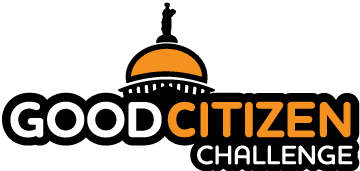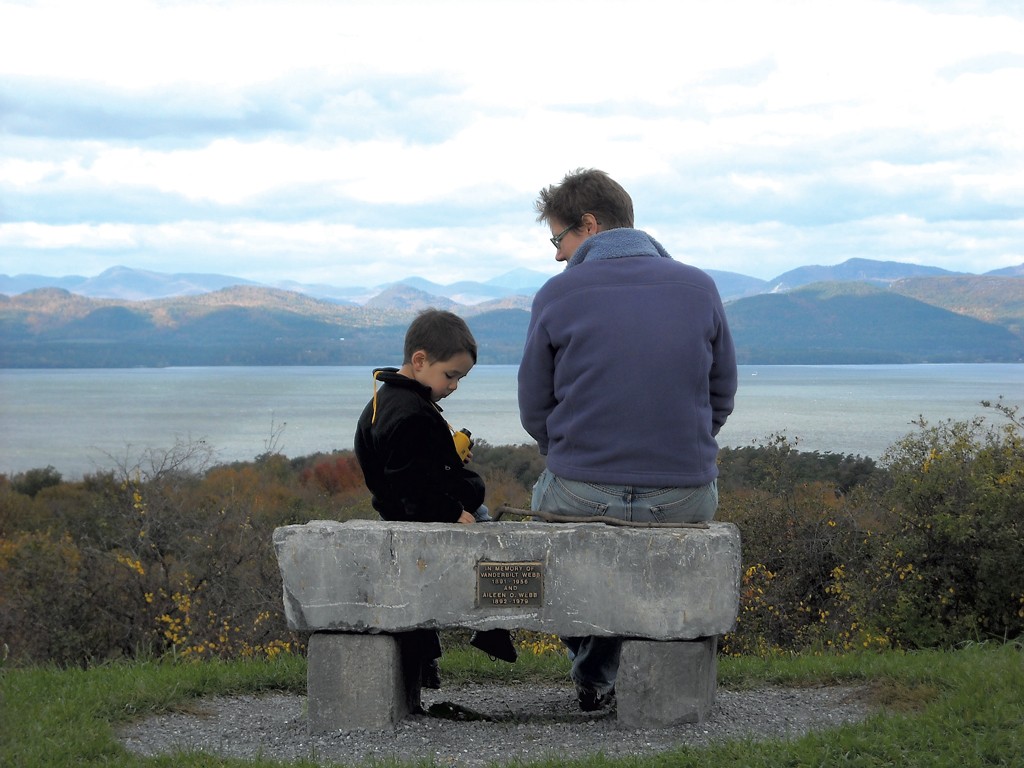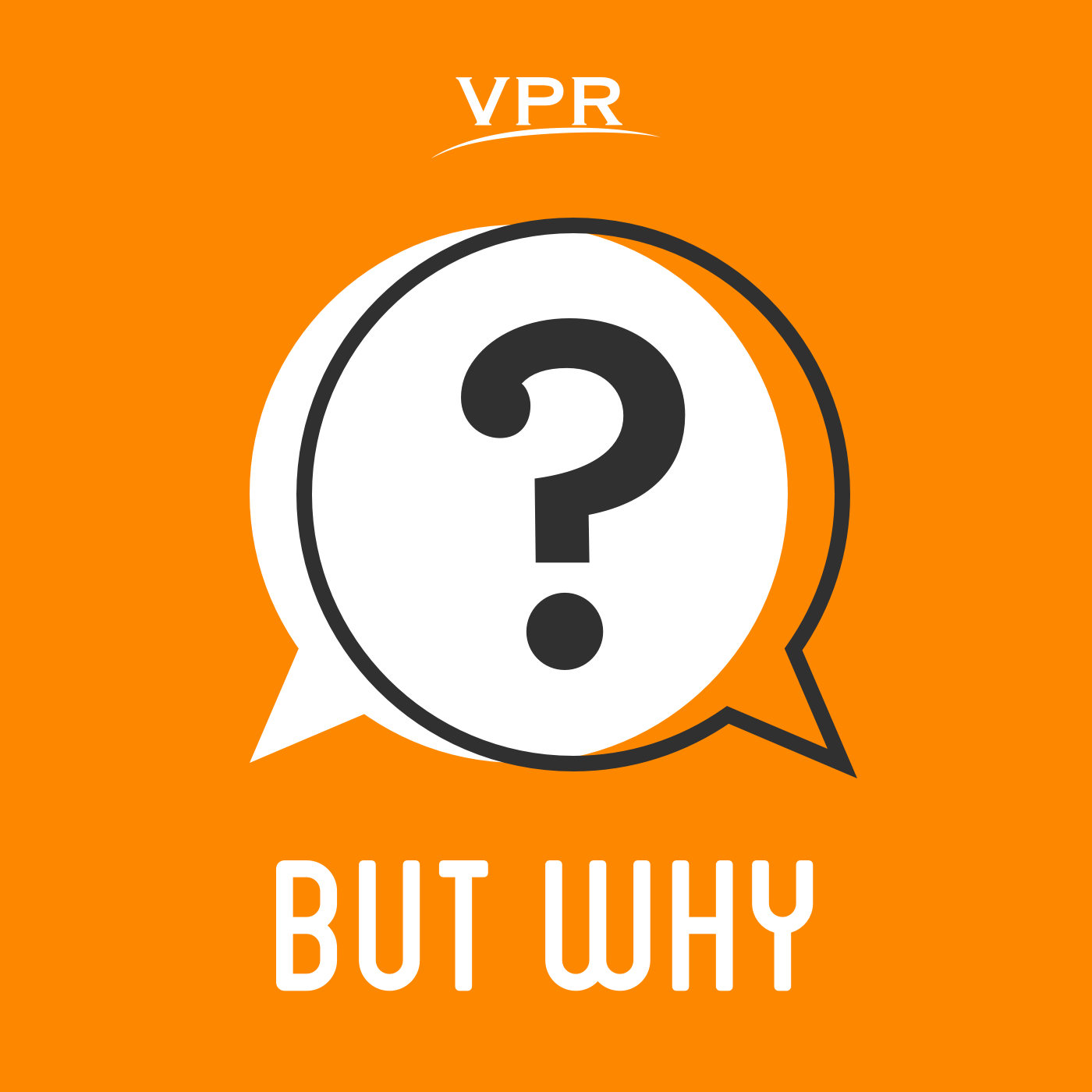Summer 2020 Challenge
We knew Vermont youth were disappointed about the things they couldn’t do in the summer of 2020 due to COVID-19. To pass the time, we created a seasonal Challenge to help them learn about their community, state and country while staying safe and healthy.
Below is an archive of the actvities from the Summer 2020 Challenge.
August 2020 Activities
Sorry. The deadline to submit contest entries for these activities has passed. Feel free to complete the activities anytime regardless!
HISTORY
1. Visit a Roadside Historic Marker you’ve never read before.
There are 259 of these markers in Vermont. Each highlights an important person, place or event. You might drive past one of these markers every day without reading it. For this activity, choose one marker to visit from this list. Get out of your car, read it and reflect on what it commemorates. Tell us which marker you chose and why, and submit a photo of it.
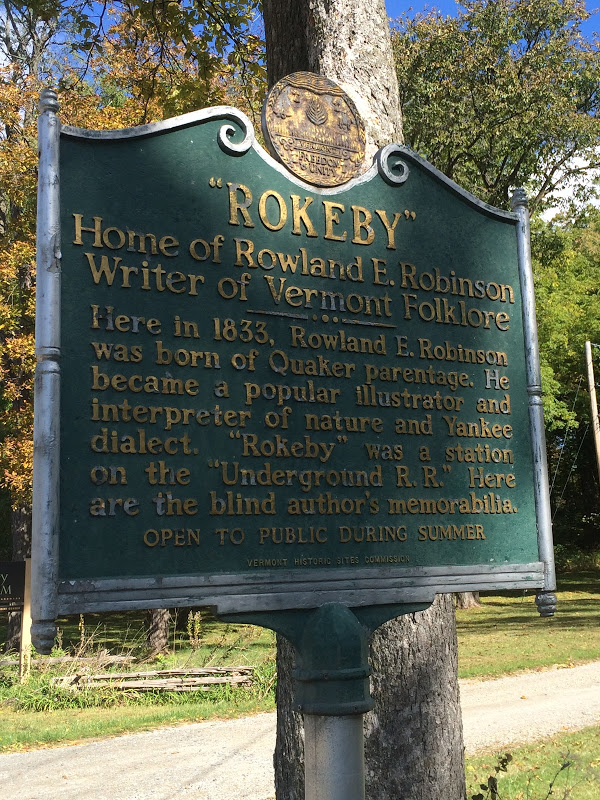
(Courtesy of the Division for Historic Preservation)
COMMUNITY
2. Buy something from a Vermont farmer.
August is a great time to buy fresh local produce from your favorite farmer. Fresh fruit and veggies taste better, they’re good for you and supporting a local farmer helps the Vermont economy. Looking for a local farm? Here are two lists, one from the Vermont Land Trust and one from the Northeast Organic Farming Association. Farmers markets count, too! Tell us which farm you supported and why, and share a photo of your purchase.
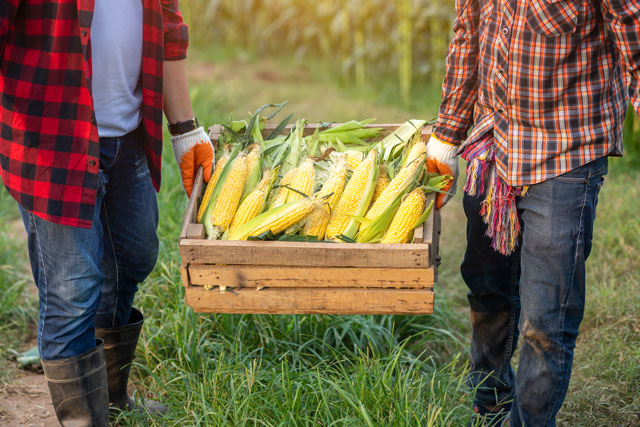
(© Pramote Polyamate | Dreamstime.com)
GOVERNMENT
3. Learn about the first female Lieutenant Governor in the U.S., Vermonter Consuelo Northrup Bailey.
In the primary election on August 11, Vermonters chose Molly Gray as the Democratic nominee for Lieutenant Governor. If she wins the election in November, she’ll be the fourth Vermont woman elected to this statewide office. The first, Consuelo “Connie” Northrup Bailey, served in the role from 1955 to 1957. When she was born, in 1899, women couldn’t even vote! Here’s a comic strip from Kids VT that tells her story. Learn more in this brief video from the Vermont Historical Society. Have you heard about Bailey before? Does her story surprise you? Tell us what you find most interesting about her.
NEWS LITERACY
4. Watch an episode of Vermont This Week on Vermont PBS.
Where do you get your local news? On the radio? On TV? Online? Through a newspaper? Responsible, fact-based journalism is essential to our democracy. It helps us understand our communities and the issues that are important to them. And it gives voters the information they need to make decisions about our government.
If you’re looking for reliable reporting, a good place to find it is on Vermont PBS, one of 330 PBS member stations around the country. PBS is one of the nation’s most trusted sources for news. On Fridays, Vermont PBS produces a half-hour show featuring a few reporters from around the state. It’s a good way to learn about local issues — and discover other trusted sources around the state. “Vermont This Week” airs on TV on Friday evenings at 7:30 p.m., and Sundays at 11:30 a.m. It’s also available on demand online. Watch an episode and tell us what you learned.
WELLNESS
5. Do a ‘Sit Spot’ outside.
In the July issue of Kids VT, writer and field ecology teacher Heather Fitzgerald explains the wonder of doing a “Sit Spot”: finding a few moments to sit outside in a familiar place and be fully present, tuning in to the sounds of the insects and the different calls of the birds. She writes: “A ‘Sit Spot’ offers an opportunity to practice being present to what is all around us. We get a chance to slow down; dig deeper; let go of expectations of seeing wild, furry mammals all the time; and examine things we think we know so well that we don’t even really see or understand them.”
Try doing a Sit Spot in your yard, or somewhere near your home. Simply sit quietly for several minutes. Open your eyes and ears and tell us what you notice. What kind of animal life did you see and hear? Find more instructions in Fitzgerald’s column.
July 2020 Activities
HISTORY
1. For students in the Northeast Kingdom:
Complete one of the weekly history lessons from the Old Stone House Museum in Brownington, part of a program called Kids Friday To Go! According to the site’s website: “We’ll provide a weekly free lunch, lesson plan, and take-home heritage activity kit for your preschool to early elementary school-aged child. The Old Stone House Museum curriculum will include resources, lesson plans, suggested activities, and activity guides intentionally developed to build students’ skills and knowledge in an informal, engaging manner.”
The Old Stone House Museum in Brownington has compiled a history lesson about Alexander Twilight, an African-American Vermonter born in 1795 who graduated from Middlebury College and later became the principal of Orleans County Grammar School. The July lessons consist of activities related to Alexander Twilight.
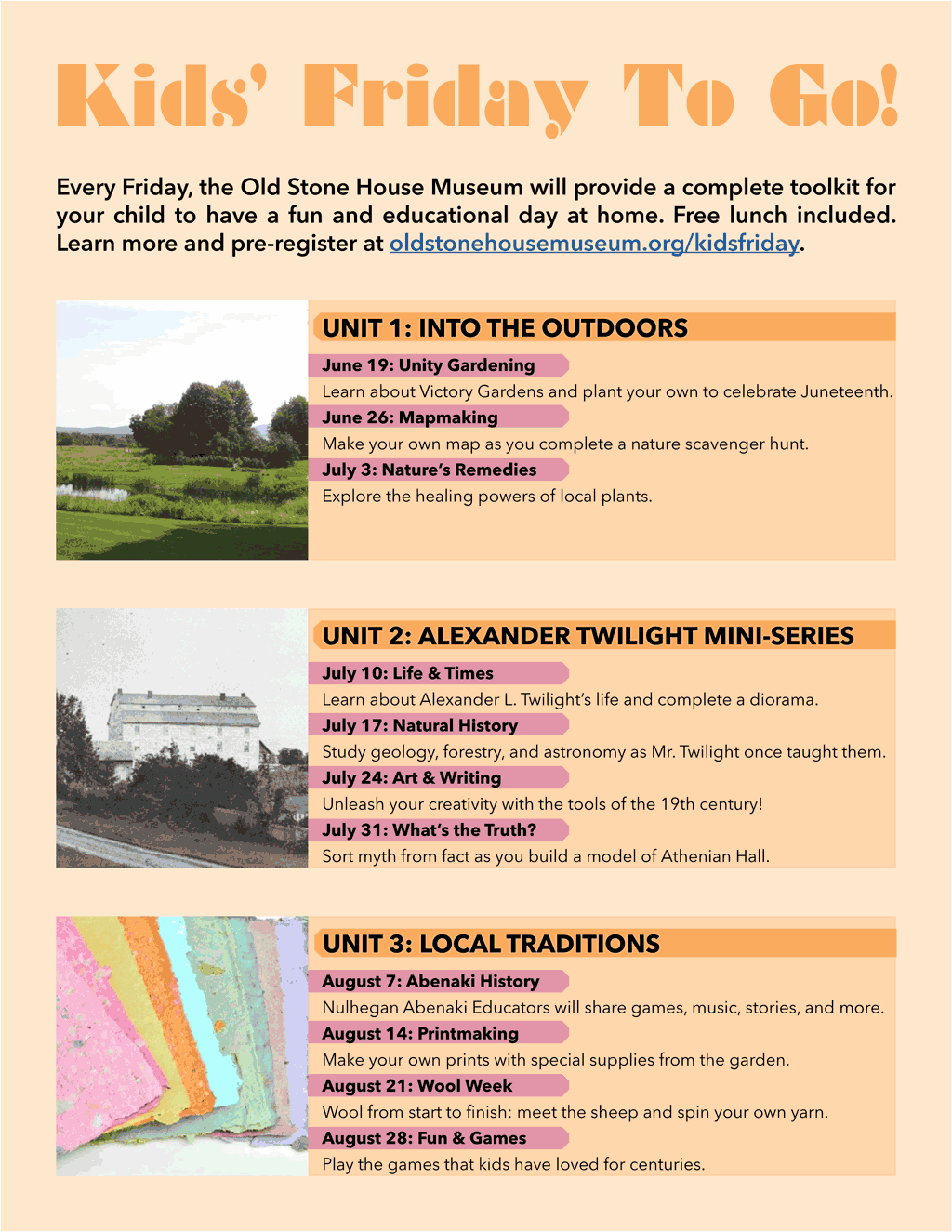
2. Memorize the Gettysburg Address and record yourself delivering it.
The Civil War battle of Gettysburg took place from July 1-3. More than 7,000 Union and Confederate soldiers died in the fighting. A few months later, on November 19, President Abraham Lincoln dedicated a portion of the battlefield as a cemetery honoring those who died there. The speech, known as the Gettysburg Address, is one of the most important and memorable in American history. You may be familiar with the beginning — “Four score and seven years ago…” — but it’s the end that’s most powerful.

Abraham Lincoln in 1863 (Alexander Gardner / Public domain)
GOVERNMENT
3. For students entering 6th through 9th grade:
Take the Camp O’Connor Civics Challenge. Named for Sandra Day O’Connor, the first female justice on the Supreme Court, this challenge invites participants to make a short video, three minutes or less, on one of five topics: Checks and Balances, the Legislative Branch, the Executive Branch, the Judicial Branch or Citizenship: Rights and Responsibilities. The winner receives an Apple MacBook Pro; second and third place finishers get iPads.
The deadline to enter is July 30. Be sure to sign up before making your video. Send us your video, too!
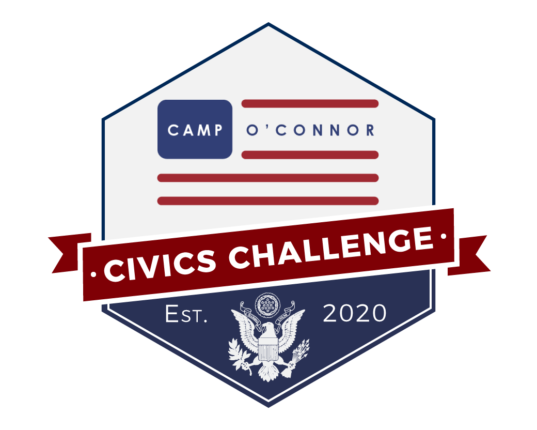
4. Learn about women’s suffrage — a word that means the right to vote.
This year marks the 100th anniversary of the passage of the 19th Amendment to the Constitution, which gave women the right to vote. The Vermont Suffrage Centennial Alliance was planning all sorts of events to celebrate, but they were canceled because of COVID-19. Take some time to commemorate this important anniversary by viewing the timeline on their website.
Reflect on how long it took for women to be granted this basic and essential right of citizenship. Would you have the strength and persistence to keep up a fight like this? Then test your knowledge of suffragette trivia. For example, did you know that women could vote in 15 states even before the 19th Amendment?
Find more facts here and share one with us that stands out to you.
5. Make a drawing/comic strip/poster encouraging adults to vote.
U.S. citizens can’t vote in elections until they’re 18 years old. Maybe you can’t cast a ballot, but you can encourage the adults in your life to take that action! Make a bold, colorful, inspiring sign or design encouraging adults to vote and send it to us. Get it to us by July 15 and Seven Days may use it in our voter guide for the August 11 primary election.

COMMUNITY
6. Listen to three episodes of StoryCorps.
This audio project, which grew out of public radio, has an ambitious goal. According to its website: “StoryCorps’ mission is to preserve and share humanity’s stories in order to build connections between people and create a more just and compassionate world. We do this to remind one another of our shared humanity, to strengthen and build the connections between people, to teach the value of listening, and to weave into the fabric of our culture the understanding that everyone’s story matters. At the same time, we are creating an invaluable archive for future generations.”
Choose any three stories on the site and listen to them. Did any of them surprise you? What did you learn? If you were going to interview someone, who would it be? Bonus: You can download the StoryCorps app and give it a try! Let us know if you do that and how it went.
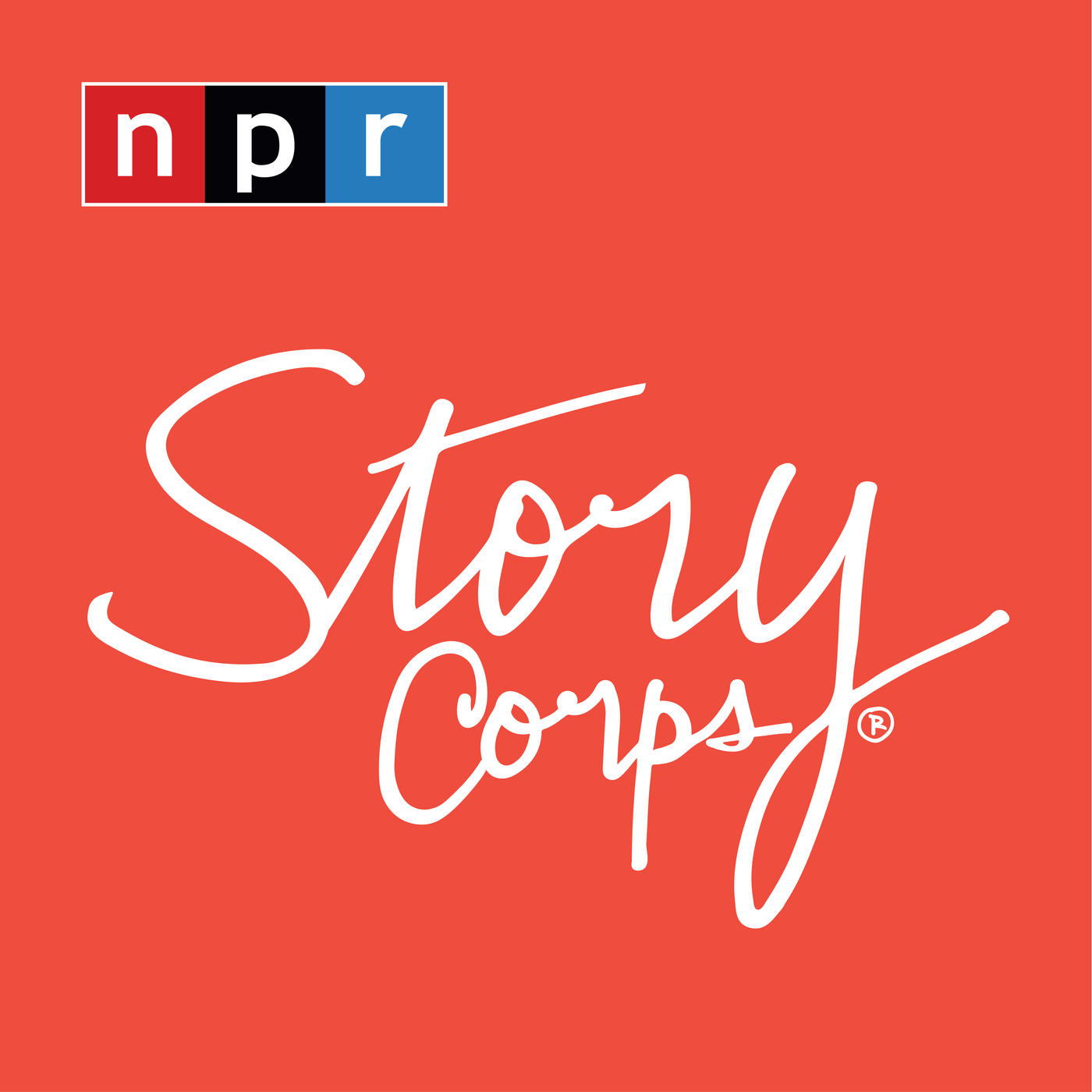
ADVOCACY
7. Write a letter to an elected official about an issue that’s important to you.
You may not be able to vote, but your voice is still important, and elected officials will often respond if you write and ask questions or share your views. If there’s an issue you feel strongly about, figure out who in the government is most likely to be able to take action.
For example, if you have a concern about your town, write to your mayor or Selectboard. If you want the state to take action on something, consider writing to the Governor or to your state senator or representative. Back up your opinion with facts. Cite evidence for your claims. Then tell us who you wrote to and what you said. We hope you get a response!
NEWS LITERACY
8. Listen to an episode of But Why? A Podcast for Curious Kids.
This well-known national podcast is produced right here in Vermont! Host Jane Lindholm and producer Melody Bodette work for Vermont Public Radio. Reading and listening to trustworthy local media outlets is an essential habit for Good Citizens. This podcast is a good place to start. Tell us which episode you listened to and what you liked best about it.
June 2020 Activities
NEWS LITERACY
1. Read an issue of your local newspaper.
What catches your eye, and why? Can you find the page that lists who works for the paper and how to contact them? Can you find out what communities it serves and who owns it? Tell us!
From a previous Challenge:
“I read the Bridge which is based in Montpelier. I saw ads and I recognized a few businesses like Clar Construction. I would like to learn about new stores, and I want more sports in newspapers. There was a star chart. There was a whole section about our schools!”
— Lachlan, Montpelier
“I read the Times Argus. I learned that high-school cross-country runner Ava Thurston has a ritual of eating a peanut butter sandwich an hour before she runs. In the New England Championships she was 5th place. The most interesting part was the articles about Veterans Day. I would like more Sudoku, because I really like Sudoku! What catches my eye is how organized the paper is.”
— Phoebe, Montpelier
“The things that caught my eye were comics, with the most interesting part being the placement of them — why are they not the first thing? And I would like to see many more kinds of funnies. I wish I could read stories about the people who write the comics.”
— Elliot, Fairfax
HISTORY
2. Visit a monument or memorial in your town.
Tell us who it memorializes, and why. While you’re there, if you see garbage on the ground, pick it up.
From a previous Challenge:
“Our team visited a memorial that honored our town soldiers. It was put there to show all the people that served our country and fought for our freedom. Some of the people that were on the memorial are my friend’s dad, my neighbor’s son and my grandfather.”
— Ayden, Bakersfield
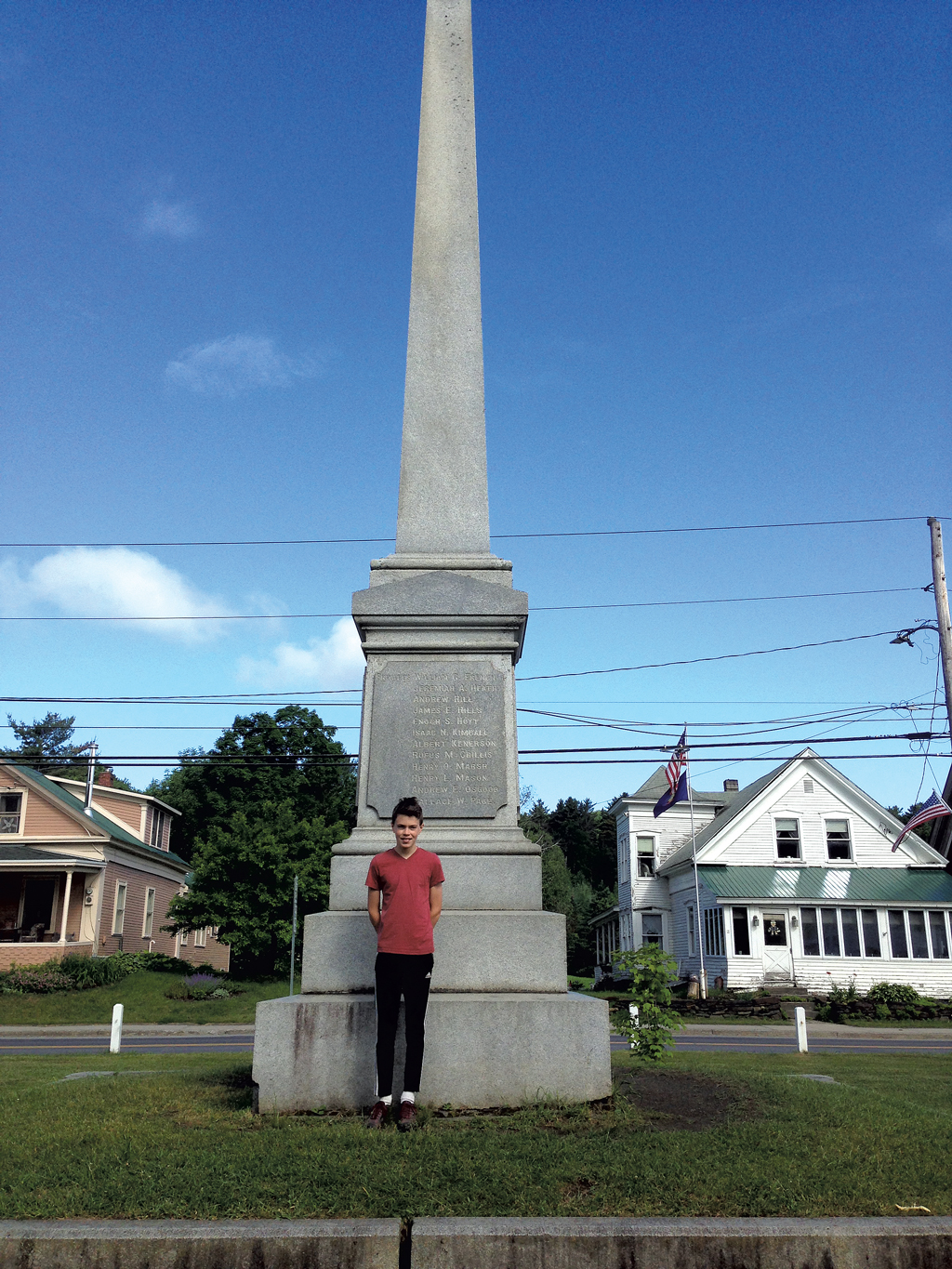
Alan Moody in front of a monument honoring soldiers from Cabot who died in the Civil War
COMMUNITY
3. Start the Venture Vermont Outdoor Challenge.
This creative list of projects, compiled by Vermont State Parks, inspired the Good Citizen Challenge. It will keep you busy all summer long doing things like walking your dog (5 points), building a fire using only one match (10 points), sleeping under the stars without a tent (10 points), and growing veggies and donating them to your local food shelf (15 points). Keep track of your activities and submit evidence that you completed them to the Vermont State Parks to win a free day-entry pass to all parks for the remainder of 2020 and all of 2021.
Get started here and tell us about your first activity!
GOVERNMENT
4. Watch Ethan 2018, a short film about Ethan Sonneborn, the youngest person to run for governor of Vermont.
Ethan was interested in politics, but running for office isn’t the only way to get involved and make a difference in your community. Tell us about how you’re involved in your community.
From a previous Challenge:
“I helped run the microphones at Town Meeting for many years. I’ve participated in a variety of homeschool groups throughout the community and am a member of the Fairbanks Museum STEM Lab team. I go to some Select Board and School Board meetings and volunteer at the Craftsbury Outdoor Center for trail building and races.”
— Amelia, Greensboro
NEWS LITERACY
5. Watch a two-minute video about how to find better information online by practicing “click restraint.”
When searching for information online, it’s important to remember that search engines like Google don’t always deliver the most accurate and helpful information first. This video, from the Civic Online Reasoning curriculum developed by the Stanford History Education Group, explains how to find trusted and reliable information. After you’ve watched the video, try searching for a topic using Google. Describe in your own words what you’ve learned from this exercise.
From a previous Challenge:
“I searched for books about Earth Day. The first websites that popped up were large bookstores like Barnes and Noble and Amazon. Then, I saw YouTube video pages and ads. I had to click to the second page to actually find some blogs about Earth Day books with descriptions and pictures.”
— Taylor, Reading
ADVOCACY
6. Read the The Hate U Give by Angie Thomas, the Vermont Humanities’ Vermont Reads book for 2020.
This young adult novel centers on a teen girl who witnesses police violence, and how she reacts. In a statement on the Vermont Humanities website, executive director Christopher Kaufman Ilstrup writes: “We know that The Hate U Give is likely to provoke passionate conversations in Vermont. In some cases those conversations will be difficult or challenging. We hope that readers will learn, grow, speak up, speak out, make mistakes, and learn some more. And we hope that they will feel empathy and compassion for the many different characters they will encounter in Angie Thomas’ book.” Write a paragraph describing what you think of Starr’s decision to speak out.
From a previous Challenge:
“I’m happy Starr spoke out against police brutality. As an activist against racism, I believe more people should be like Starr and speak out.”
— Martha, Whitingham
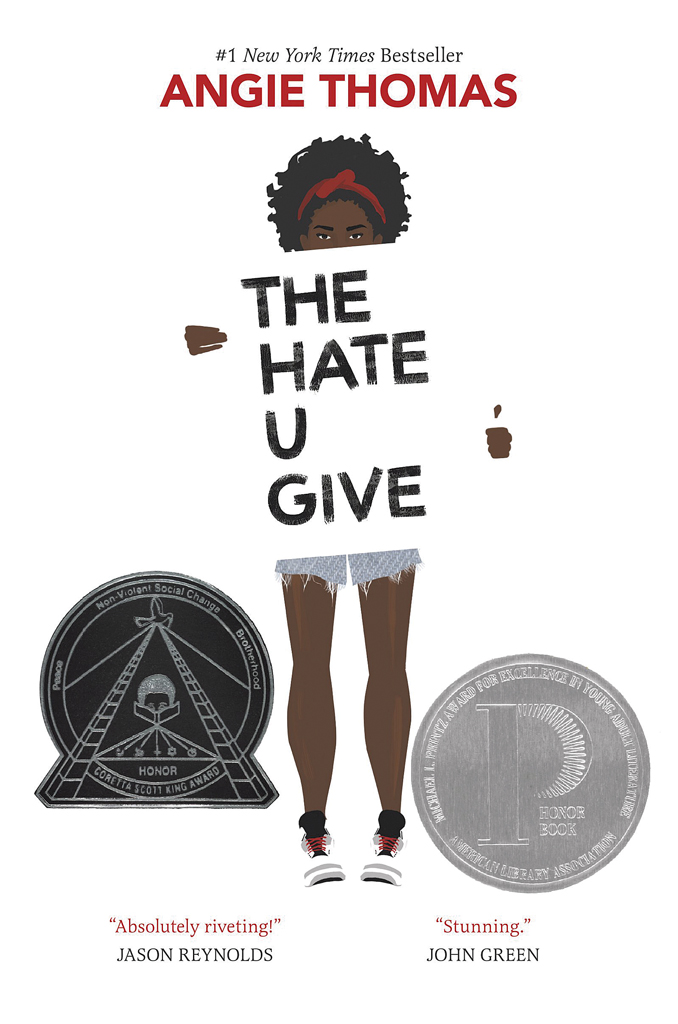
HISTORY
7. Listen to the “A(nother) Brief History of Vermont Road Names” episode of VPR’s podcast “Brave Little State.”
It aired on September 6, 2019. Tell us which road name you liked best, and why.
From the last challenge:
“My favorite road name was Hi-Lo Biddy Road. I liked this one best partly because no one really knows how it got named. It’s also in my town!”
— Jude, Putney
HISTORY
8. Explore Vermont history by visiting some of the sites listed on the Vermont Historical Society website.
This page lists dozens of outdoor sites you can visit to learn more about our state, including art strolls, history hikes, roadside markers and drives along scenic byways. Thanks to Vermont Historical Society museum educator and manager Victoria Hughes for compiling it!
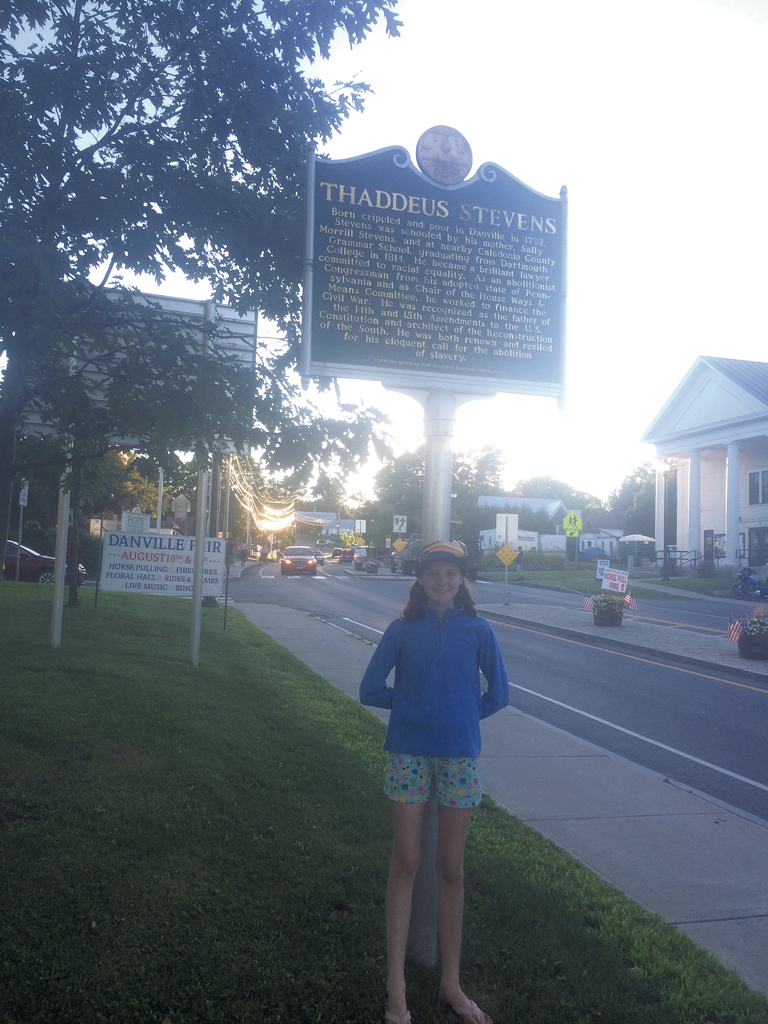
Somerset Pierce in front of the historical marker commemorating the birthplace of abolitionist Thaddeus Stevens
ALL CATEGORIES
9. Listen to a podcast.
Learn more about history, government, news literacy and current events by listening to podcasts. This is a perfect activity for a rainy day. You may also be able to listen to them in your car. Some Good Citizen-related recommendations, all of which are accessible for free online or via iTunes or Google Play:
- VPR’s “Brave Little State” and “But Why?”
- “Your Undivided Attention,” a podcast from the Center for Humane Technology.
- “Uncivil,” a podcast that focuses on lesser-known stories of the Civil War.
- “White Lies,” a series investigating a Civil Rights-era murder in Selma, Ala., that was a finalist for this year’s Pulitzer Prize for audio reporting.
COMMUNITY ENGAGEMENT
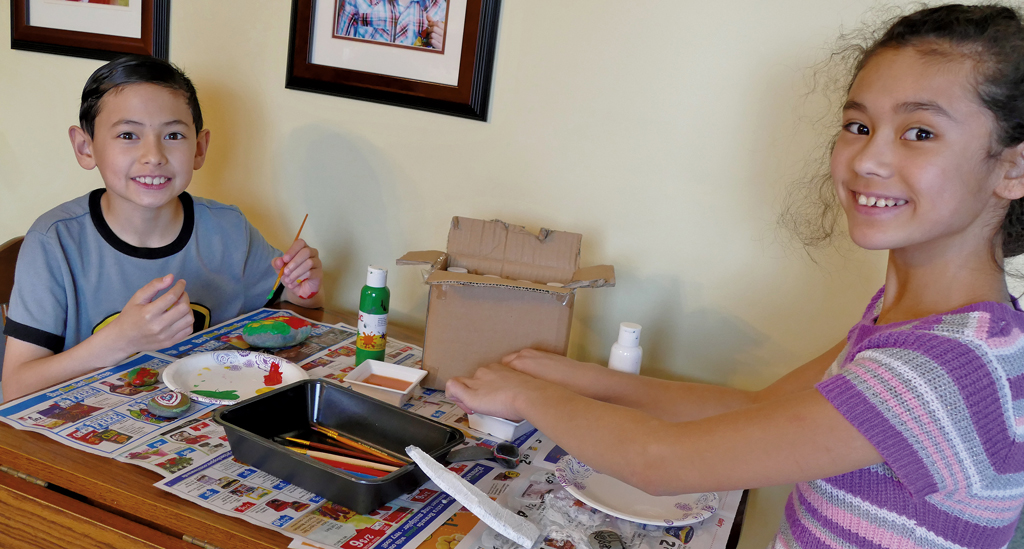
Ethan and Sophia painting rocks at their home in St. Albans
10. Paint a rock.
Paint colorful designs or positive messages on your rock. Send a message of hope to your neighbors and others in your community by leaving it for others to find. Looking for some inspiration? See pictures of rocks others have painted in the Vermont Rocks Facebook group. Don’t forget to send us a photo!
The Good Citizen Challenge is organized by Burlington-based Seven Days — Vermont’s locally owned, independent newsweekly — and its free monthly parenting magazine, Kids VT, with support from the Vermont Community Foundation and the Evslin Family Foundation.
Want alerts?
Sign up for the Good Citizen newsletter below.
Need some help?
Please contact us at 802‑865-1020, ext. 114
(Monday‑Friday, 9 a.m.‑5 p.m.)
or send us an email: goodcitizen@sevendaysvt.com
